How Often Should You Clean Your Furnace Ducts?
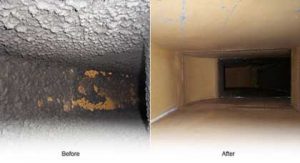 When was the last time you had your furnace ducts cleaned? If you don’t have a quick answer to that question, don’t worry – you aren’t alone. This is something that many people never think to address, but it’s actually an important part of the ongoing maintenance of your home. This article will highlight the importance of furnace duct cleaning and discuss how often this task should be completed.
When was the last time you had your furnace ducts cleaned? If you don’t have a quick answer to that question, don’t worry – you aren’t alone. This is something that many people never think to address, but it’s actually an important part of the ongoing maintenance of your home. This article will highlight the importance of furnace duct cleaning and discuss how often this task should be completed.
Whether it’s furnace duct cleaning you need, or anything else related to heating and cooling, Berico is the right partner for the project. One of the best in High Point HVAC, Berico is the easy choice for great value and excellent service.
Stay Ahead of the Game
If you want to make sure you and your family are able to enjoy clean air throughout the year, going with an annual furnace duct cleaning is a good practice. You can have this work completed when you have the rest of your HVAC system serviced, and you can be sure that the air coming out of your ducts will be fresh and clean for the next twelve months.
The nice thing about having your furnace ducts cleaned annually is that this job is affordable and doesn’t take long to complete. When you work with a partner like Berico who has the powerful equipment needed to thoroughly clean the ducts in a timely manner, you can have the project checked off of your to-do list in no time at all.
Signs That Duct Cleaning is Needed
As an alternative to setting up an annual duct cleaning, you might also watch for signs that your furnace ducts are dirty and need to be addressed. There are a few signs that you can watch for which might point out the need to have the ducts cleaned, such as the following –
- Accumulating dust. There will always be some dust that builds up in a house or any other type of building, but more dust than usual could point to a problem with the HVAC system. Specifically, if you are seeing big piles of dust accumulating in just a short period of time, that could point to dirty ducts that need to be cleaned as soon as possible.
- Using more energy. Dirty ducts not only take a toll on the air quality in your home, but they can also make the system less efficient. If you notice that your energy bill has been climbing in recent months without any other explanation (like a major cold snap), it might be that dirty ducts are requiring the furnace to work harder than it would otherwise.
- Mold near the registers. If you see mold growing near the registers that serve your ducts, be sure to have the system cleaned right away (as well as inspected). Mold can pose a serious health threat if the matter isn’t addressed properly by a professional team.
It doesn’t matter if you have a propane furnace or a unit that uses any other type of fuel, having your ducts cleaned is always an important maintenance step to take. As a leader in furnace repair in High Point, Berico is ready to jump into action on this project, so reach out today to get started.


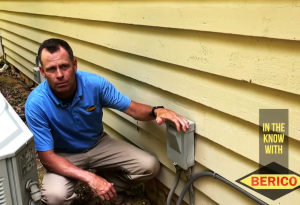 Although your HVAC system typically runs in the background at your home without so much as a second thought, there will likely be a time when the need pops up for a service call. If you do have to call in an HVAC technician for a repair, how much will that call cost? This article will provide some clarity on that point.
Although your HVAC system typically runs in the background at your home without so much as a second thought, there will likely be a time when the need pops up for a service call. If you do have to call in an HVAC technician for a repair, how much will that call cost? This article will provide some clarity on that point.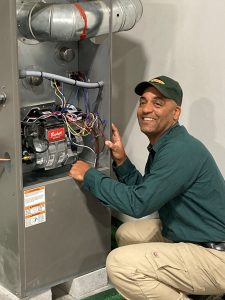 Propane is an excellent fuel to keep a home warm throughout the winter months. If you have a propane furnace, you can likely speak to how well it performs throughout the cold season – but it can only maintain that level of performance if it is cleaned regularly. So, how often should a propane furnace be cleaned? That question, and more, will be answered below.
Propane is an excellent fuel to keep a home warm throughout the winter months. If you have a propane furnace, you can likely speak to how well it performs throughout the cold season – but it can only maintain that level of performance if it is cleaned regularly. So, how often should a propane furnace be cleaned? That question, and more, will be answered below.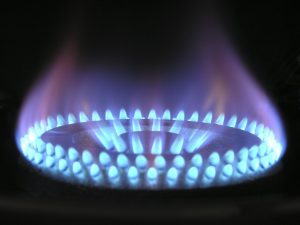 As more and more attention is paid to environmental concerns, and more and more people become aware of how their actions impact the world around them, a critical eye has been turned toward the kinds of fuels that are used to heat houses. If you have a propane furnace in your home, you might be wondering about how the burning of that fuel is impacting the environment and whether you should consider switching to something else.
As more and more attention is paid to environmental concerns, and more and more people become aware of how their actions impact the world around them, a critical eye has been turned toward the kinds of fuels that are used to heat houses. If you have a propane furnace in your home, you might be wondering about how the burning of that fuel is impacting the environment and whether you should consider switching to something else. It’s no secret that HVAC work can be expensive. Whether it’s an extensive repair or the installation of an entirely new system, the bill can rack up quickly – even if you are working with a trusted, honest provider like Berico. With that in mind, you might be wondering about financing options that would allow you to spread out the cost of your HVAC work over an extended period while being able to enjoy the benefits right away.
It’s no secret that HVAC work can be expensive. Whether it’s an extensive repair or the installation of an entirely new system, the bill can rack up quickly – even if you are working with a trusted, honest provider like Berico. With that in mind, you might be wondering about financing options that would allow you to spread out the cost of your HVAC work over an extended period while being able to enjoy the benefits right away.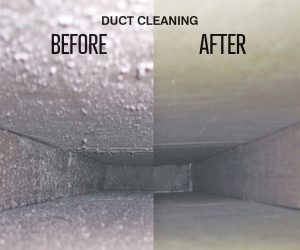 Although it plays a vital role in your HVAC system, the ductwork in your home probably gets next to no attention day after day. In fact, you might not think much about your HVAC system at all until a problem comes up, and even then, you are probably focused on the units that actually produce the warm or cool air. But can your ducts really be left alone for decades, or do they eventually need to be replaced? This article will take a closer look.
Although it plays a vital role in your HVAC system, the ductwork in your home probably gets next to no attention day after day. In fact, you might not think much about your HVAC system at all until a problem comes up, and even then, you are probably focused on the units that actually produce the warm or cool air. But can your ducts really be left alone for decades, or do they eventually need to be replaced? This article will take a closer look.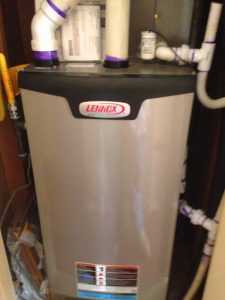 When you think about upgrading the HVAC equipment in your home, you don’t think about saving money – you think about spending it. This is a project that comes with a cost, of course, and that cost might be the primary thing holding you back from having the job done. But what if it was possible that a furnace upgrade might actually be a money saver in the end? This article will address just that possibility.
When you think about upgrading the HVAC equipment in your home, you don’t think about saving money – you think about spending it. This is a project that comes with a cost, of course, and that cost might be the primary thing holding you back from having the job done. But what if it was possible that a furnace upgrade might actually be a money saver in the end? This article will address just that possibility.